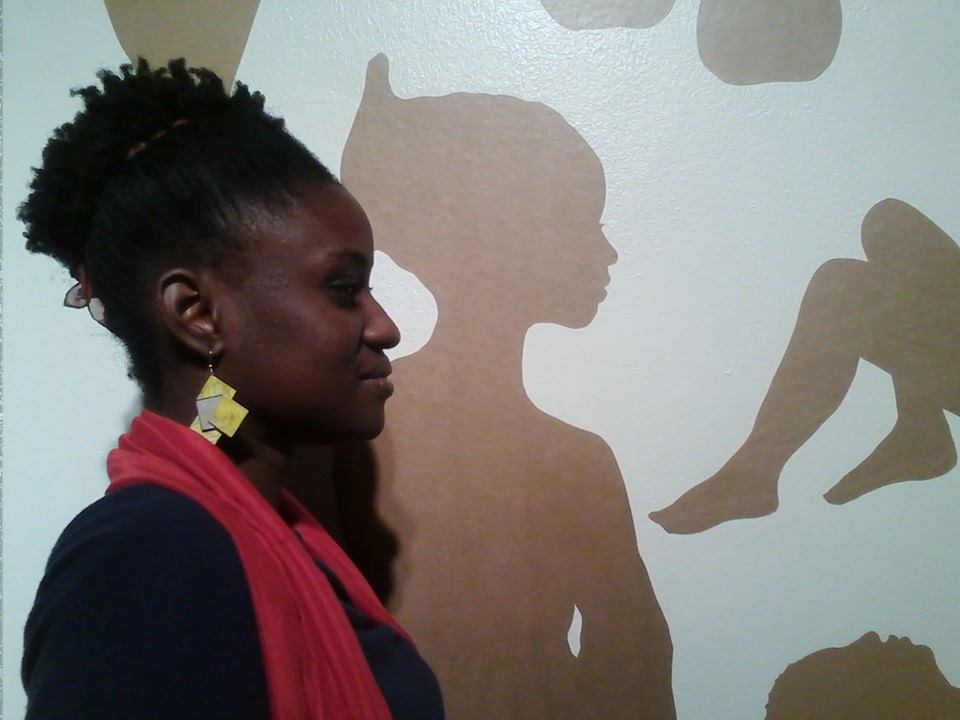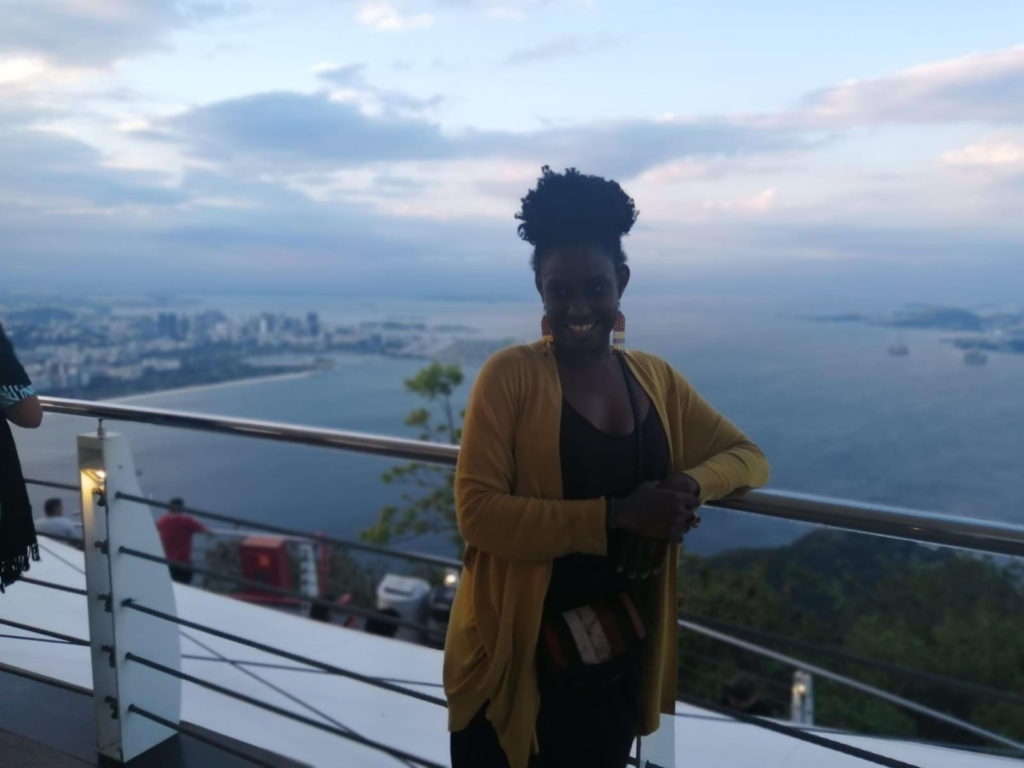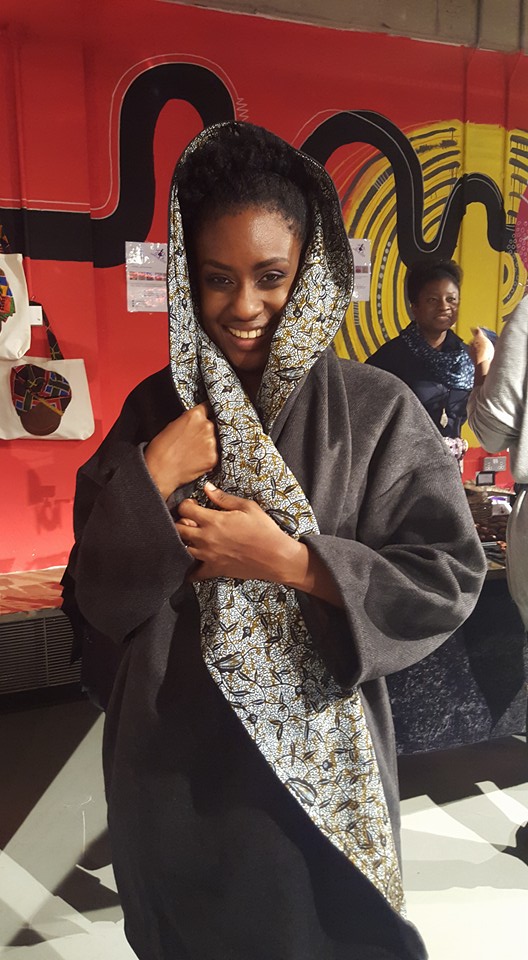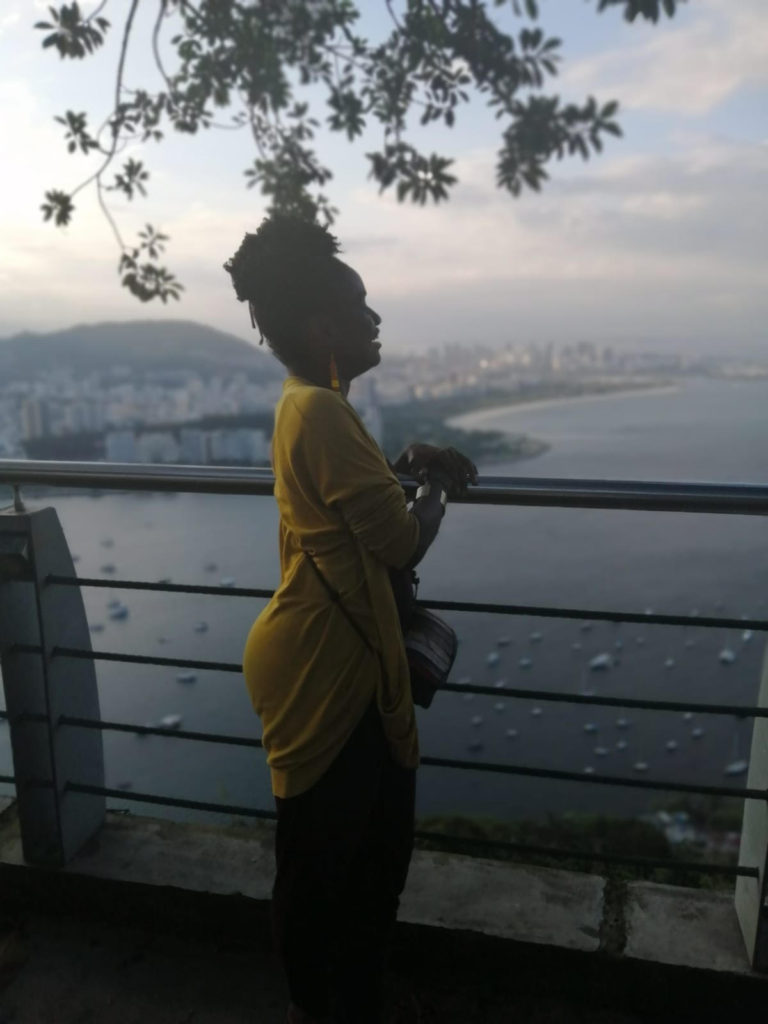During the week of the celebration of International Afro-Latin, Afro Caribbean and Diaspora Women’s Day, (25th July) we had an inspiring conversation with Alinta Sara, an Art History and French language educator originally from Reunion Island, based in London. Alinta is co-founder of Bokantaj, an arts platform aiming for the exchange between cultures, with a “south-south” vision. She is also research and education coordinator at “Our Journey, our story” a project by Sickle Cell Society, working on the history of sickle-cell disease in the UK.
by Juliana da Penha
As we are celebrating Afro-Latin and Afro-Caribbean women, tell about your Afro-Caribbean roots.
Alinta: I am from Reunion Island; my father is from Conakry Guinea and my mother from Martinique. When I was five years old, I moved to Martinique and grew up there. When I was 18, I moved to France, where I stayed until 2004 and studied Art History. Later I moved to England, in London, where I live now and studied an MSc in African Studies.

How did you learn Portuguese and got involved with afro-Brazilian culture?
Alinta: My MSc thesis is about the Afro-Brazilian Architecture Legacy in Africa, about the “returnees”, the African slaves who left Brazil, come back to Africa and settle there. I was always interested in Afro-Brazilian and Afro-Cuban culture. I studied Yoruba and wrote an essay about the Yoruba culture in Cuba. I learnt Afro-Brazilian dance. I saved some money and in 2017 and travelled to Brazil for almost three months, to Rio da Janeiro and Bahia. When I was there I started to look for jobs, I wanted to stay there (laugh).

You and Aminat Lawal are co-founders of Bokantaj. Could you explain what was the motivation to found this organization and speak about the activities and events you produce?
Alinta: Our idea is to show the connections between different cultures through arts and education. We organize events, workshops, exhibitions and collaborations. Normally, people don’t know about the links between Africa and the Americas. For example, there is a lot of influence on the Yoruba language in the Americas. We want to discuss different ways we can see these connections. Another example, in Martinique, we listen to Haitian music from our childhood, and we know about Haitian painters, so I wanted to show these links. We organized an event about the Haitian culture, presenting other representations of Haiti with arts and movies. We also want to show the different lines of the French Caribbean, the diversity of these regions and the colonial boundaries of the language present in Europe. Last year we organized an exhibition about the arts and literature from Martinique with artists from this country. So, in Bokantaj, we show these connections. The next exhibition we are planning will be about Guadalupe.
Normally, people don’t know about the links between Africa and the Americas.

You mentioned the importance of a “South-South” connection, create and maintain the links between Africa and the Americas.
Alinta: Yes, because we have a shared history. In Brazil, there are a lot of cultural aspects that we have in the Caribbean, like music. We have different cultures, but we have a lot of connections. We don’t speak about the influence of the Americans on Africa. We need to see beyond Europe and the United States. We need to have a south-south vision. In Europe, they have this feeling of being European; they share and recognize their shared heritage, coming from the Greeks and Romans. On Latin America and Caribbean, we don’t share this universal feeling, but we have many things in common, like History.
We need to see beyond Europe and the United States. We need to have a south-south vision.

From your experience as an art professional, could you tell me how is to be an Afro-Caribbean woman in the Arts world in England?
Alinta: I want to become an Arts curator, but Arts is a complicated world. Everybody is focused on racism in the United States because it is more evident; however, although the United Kingdom appears more open, things here are problematic, racism and prejudice are veiled. You see it on the access to higher positions. How many black people do you see in the management/direction positions in art projects or organizations in the UK? You don’t see them. In the UK racism is veiled.
How many black people do you see in the management/direction positions in art projects or organizations in the UK? You don’t see them. In the UK racism is veiled.
Why is it important to celebrate the International Afro-Latin, Afro-Caribbean and Diaspora Women’s Day?
Alinta: I think it is essential because we need to show the Black presence in Latin America. The usual way of think is that in Americas everybody is mixed-race but this is not real. It’s a day to speak and celebrate the Black women from Latin America and the Caribbean because they are invisible. In the Caribbean things are different because the majority of people are Black.
Many times, Haitian people are rejected within Caribbean culture, because they usually are darker, and we have a lot of discussions about Colourism. The question of Colourism is present over there because as lighter is your skin colour, wealthier and from a higher class you are.
For example, when my mother married my father, people asked her: Why did you marry a dark man! Another situation regarding this question happened when I was in Brazil, with a Brazilian friend who is dark-skinned, and someone said: I didn’t think you are from Brazil. I thought you are from Haiti.
When we speak about racism, slavery, the focus is on the United States. It looks like it never occurred in Latin America and the Caribbean. The International Afro-Latin, Afro-Caribbean and Diaspora Women Day is an important date. It’s a day to remember these women, so they are less invisible.
The International Afro-Latin, Afro-Caribbean and Diaspora Women’s Day is an important date. It’s a day to remember these women, so they are less invisible.

https://www.sicklecellsociety.org/
picture by @vikki_marie_page
